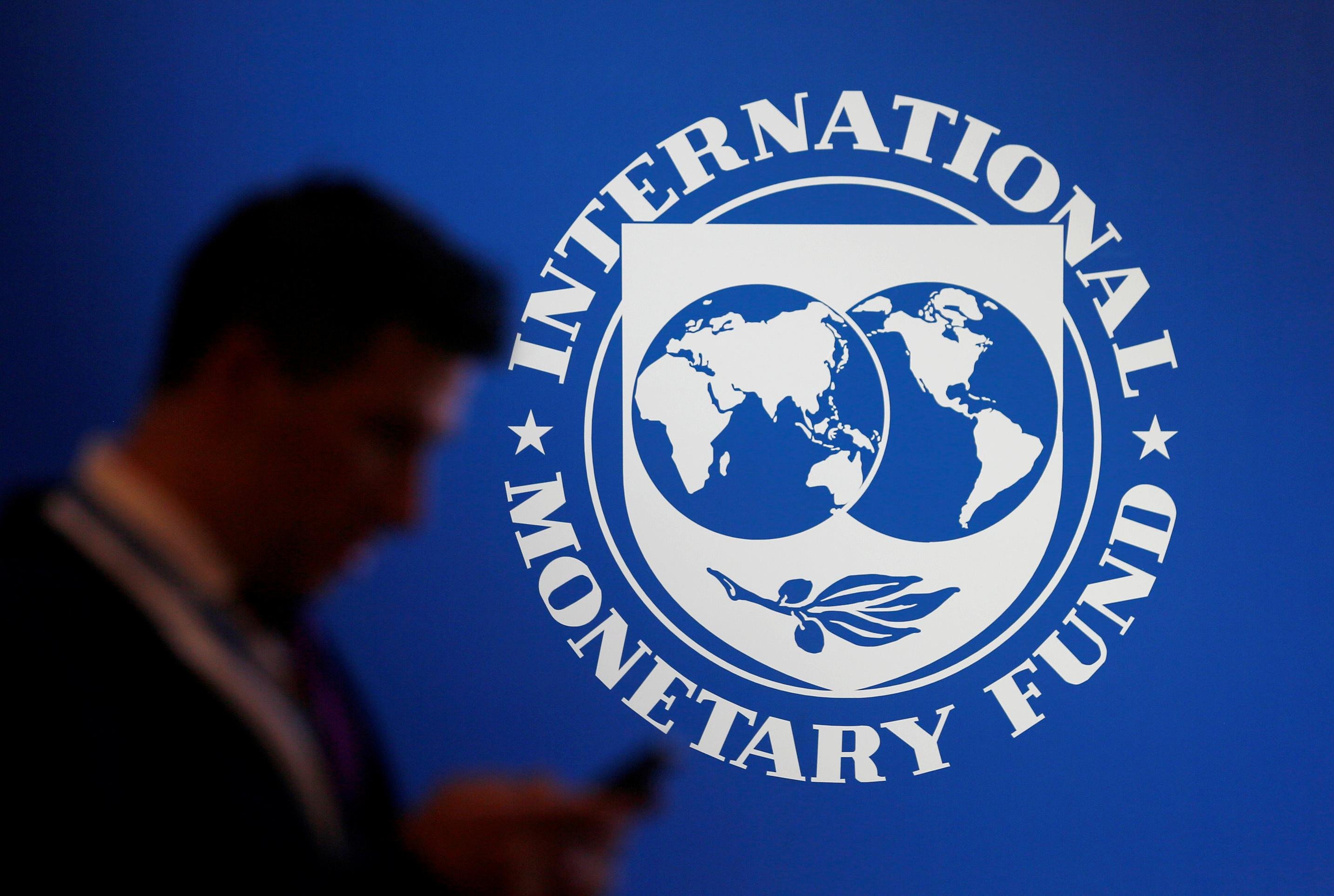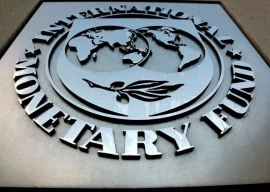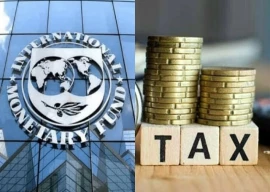
The International Monetary Fund (IMF) on Friday asked Pakistan to immediately slash expenditure in the range of Rs163 billion to Rs183 billion, as it is not ready to compromise on the goal of achieving a primary budget surplus this year despite a significant revenue shortfall.
The development came amid the government’s decision to appoint Ali Pervez Malik, Member of the National Assembly, as the Minister of State for Finance and Revenue. Ali Malik belongs to a political family and is considered an unorthodox legislator.
Sources told The Express Tribune that during the first day of interactions, the IMF reiterated its old demand that there would be no compromise on the core objective of having a primary budget surplus of 0.4% of Gross Domestic Product or Rs401 billion.
The issue came up for discussion on the first day of programme talks after the Federal Board of Revenue (FBR) informed the global lender that it was facing a revenue shortfall of Rs163 billion to Rs183 billion for the current fiscal year ending in June, said the sources.
A day earlier, the IMF team quietly landed in Pakistan – five days before the date given by Finance Minister Muhammad Aurangzeb in his press conference in the presence of two other federal ministers.
The FBR assured the IMF that it would try to recover Rs20 billion to Rs25 billion through administrative action under Statutory Regulatory Order 350. The SRO aims to block fraudulent or undue sales tax refunds, and the FBR has already recovered Rs2 billion from one company.
The FBR informed the IMF that its direct tax collection was exceeding the target with a growth rate of over 40%. Despite a compression in imports, customs duties were also growing at a 13% rate. However, the challenge arose from Rs215 billion stuck in court cases.
Pakistan had earlier assured the IMF that the courts would decide these matters by April-May. However, the court proceedings were taking longer, and now the authorities have assured the lender that decisions might be announced from June.
The apex court has also issued guidelines to the high courts for the timely disposal of cases related to taxation.
The petitioners have challenged the government’s move to impose super tax, tax on real estate, and tax on windfall gains made by commercial banks. These measures were taken as part of the last budget. Out of the Rs415 billion additional tax measures that the PDM government had taken in the previous budget, nearly half of it is now stuck in the courts.
The sources said that the IMF asked Pakistan that in order to cover the revenue shortfall, there is a need to reduce expenditure by the same amount.
The government was already walking a tightrope and has very limited fiscal space available to make room for cuts in expenditure. The only conveniently available window was to reduce expenditure on development.
In its last staff level report on the Stand-By Arrangement, the IMF said on Friday that for strengthening economic stability, strict adherence to the FY2024 target and further adjustment beyond FY24, while protecting development needs and the social safety net, are essential to alleviate external and domestic pressures and ensure fiscal sustainability.
It further stated that Pakistan remained committed to achieving an FY24 general government primary surplus of at least Rs401 billion or 0.4% of GDP, which will require steadfast effort.
The staff level report underlined that the annual FBR revenue targets remained unchanged at Rs9.415 trillion, but there are risks of shortfalls in April and May 2024 due to holidays that will see port closures and weigh on revenue collection.
The report stated that agreed contingency measures will be adopted should collections fall short.
The report said that efforts to collect additional revenue from retailers have been delayed, and challenges continue in the tobacco sector where, despite the mandatory implementation of track-and-trace systems, smuggling and clandestine production continue despite efforts to curtail informal production and imports.
The FBR is facing another challenge in the shape of constant pressure from the government to recover its stuck-up revenues. The government has started penalising chief commissioners for the actions of lawyers seeking adjournment in tax cases.
As a result, the lawyers have started abandoning FBR cases.
One of the senior FBR lawyers who represents the board in the Supreme Court and the high courts on Thursday refused to plead FBR cases related to the Medium Tax Office Karachi due to constant pressure.
“Due to my busy schedule before the Supreme Court of Pakistan, I am not in a position to attend FBR cases simultaneously at the High Court and Supreme Court. I am repeatedly called by your subordinate office that I am not allowed to take adjournment on any excuse whatsoever as the Prime Minister of Pakistan has suspended a Chief Commissioner because an FBR counsel sought adjournment,” wrote the lawyer to the FBR.
He further stated that under such stressful circumstances, his High Court pending cases, except for a few specifically assigned, should be handed over to some other counsel as the clash of timing in attending High Court and Supreme Court cases was inevitable.
The FBR has already missed its 10-month tax collection target by a margin of Rs52 billion. It could pool Rs7.362 trillion as against the goal of Rs7.414 trillion. The collection was Rs15 billion less than even the FBR’s own expectation – a shortfall that the administration attributes to the go-slow policy adopted by the officers against the prime minister’s move to remove the compromised and inefficient officials.
The FBR missed its monthly target by Rs57 billion as it could pool only Rs650 billion in April.
To cover the revenue shortfall and broaden the tax base, the FBR on Friday also reached an understanding with the telecom companies. The chairman FBR held a meeting with the Pakistan Telecommunication Authority (PTA) and telecom operators across Pakistan to ensure the effective implementation of Income Tax General Order No 1, issued under Section 114B of the Income Tax Ordinance 2001.
The telecom operators have agreed to initiate the manual blocking process in small batches until their systems are fully equipped to automate it, according to a statement issued by the FBR. It added the first batch comprising 5000 non-filers has been communicated to the telecom operators today for compliance regarding SIM blockage.
The FBR had issued instructions to block the SIM cards of half a million non-filers.
The telecom operators have also commenced sending messages to non-filers regarding the blocking of SIMs for intimation purposes.
Published in The Express Tribune, May 11th, 2024.
Like Business on Facebook, follow @TribuneBiz on Twitter to stay informed and join in the conversation.



1724318195-0/BeFunky-collage]_____-(59)1724318195-0-165x106.webp)















1730706072-0/Copy-of-Untitled-(2)1730706072-0-270x192.webp)
COMMENTS
Comments are moderated and generally will be posted if they are on-topic and not abusive.
For more information, please see our Comments FAQ